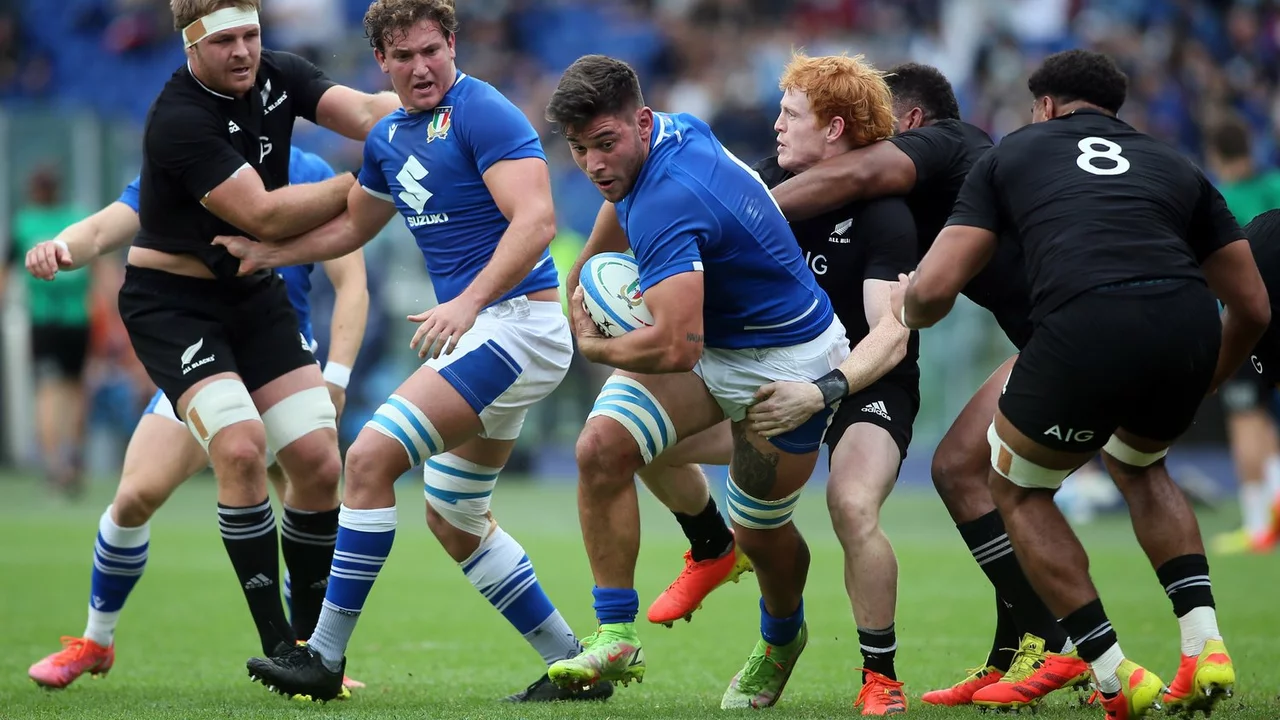A Passion or A Puzzlement: The Rugby Union Landscape
I vividly recall the first time I watched a rugby union match on television. It was a rainy Sunday. I was barely 10-years-old, and an attempt to flick through channels to distract myself from rainy-day boredom landed me in the middle of a ferocious battle on a muddy field. Burly men clashed and wrestled, a strange ball was passed around, and the roar of the crowd seemed to shake the heavens themselves. I didn’t know it then, but I had stumbled upon the fascinating world of rugby union.
As with any newly discovered passion, the first years were a whirl of muddy games, painful training sessions, and a growing understanding of the unique ethos and culture of the sport. Experience is a harsh but effective teacher, and there were several moments of humiliation - who would've guess rugby balls don't exactly bounce straight - but there was also triumph. And above all, there was a growing love for the sport.
Emerging Force or Distant Follower: Rugby Union's State of Popularity
Rugby union, despite being slightly underground compared to other mainstream sports, has steadily snuck its way into the hearts of many countrymen and women. A question that comes up often is this very conundrum: Just how popular is rugby union in your own country?
Depending on where you are, the answer can range from "Why are you even asking me that?" to "Rugby union, what's that?" Still, there is no denying that it has worked its way into the consciousness of an increasing number of people. Riding on a wave of globalisation and unhindered by historical or cultural barriers, rugby union is making itself known in more nations than ever before.
Traditional Strongholds: The Rugby-Crazy Nations
We all know about the traditional powerhouses of the sport - England, the birthplace of rugby union, the All Blacks of New Zealand with their Haka that chills and thrills, and the Wallabies of Australia with their flair and never-say-die spirit. A special shout-out also goes to the neighbouring sheep-loving nation of Wales, where the sport is an intrinsic part of national identity, and Ireland, where it has cemented its place as a popular sport over time.
Then there's South Africa, which has carved itself a place in rugby union history not just through its victories on the pitch but also through the iconic 1995 World Cup post-apartheid moment between Nelson Mandela and François Pienaar. Talk about rugby working its magic to unify a nation!
The Surprise Entrants: Non-Traditional Rugby Nations Making Waves
However, rugby union popularity isn't limited to these countries. Japan, known more for its skill in baseball, soccer, and sumo, has emerged as a new hotbed for rugby. Who can forget their historic win against South Africa in the 2015 Rugby World Cup? USA and Canada are other non-traditional rugby nations showing promise, and even Russia has started to carve out a space in the rugby union domain.
In Argentina, rugby union has grown into one of the most popular sports, riding on the successes of the national team, Los Pumas. And let's not forget the likes of Italy, Romania, Georgia, and Fiji, who have displayed fantastic performances on the international stage.
Assessing Popularity: It's More Than Just Numbers
But how do we actually measure the popularity of a sport like rugby union? It's not as simple as counting the number of people who watch the World Cup every four years. A sport's popularity is a multi-faceted beast that extends far beyond television ratings or social media buzz. Often, it is more about the sport's impact on a society, the grassroots development, and the emotion and passion that it evokes in its followers.
Popularity is about how many children dream of lifting the Webb Ellis Cup instead of the FIFA World Cup. It's about people willing to brave wind, rain, and snow to support their teams. It's about the sport's ability to inspire, to enthral, and to unify diverse people. By that metric, rugby union is more than just popular - it's a transformative force.
Here's the Hook: Get Involved!
If you're reading this and you've never given rugby union a try, now is the time to get involved. It's never too late to start, be it as a player, a fan, a coach, or even a referee. And if nothing else, show up to a match and feel the energy of the crowd, the passion of the players, the tactical nuance of the coaches. It's an experience like no other, and who knows, you might just get swept up in the fever.
Rugby Union: More Than a Game
Welcome to the world of rugby union, folks. It's much more than just a game. It's an ethos, a culture, a community. It's pain and triumph and joy and heartache served in a single package. As with any sport, it's about passion, and that, in its core, is what makes it so special. To quote the great Nelson Mandela, "Sport has the power to change the world. It has the power to inspire." And rugby union, at its best, does just that.
